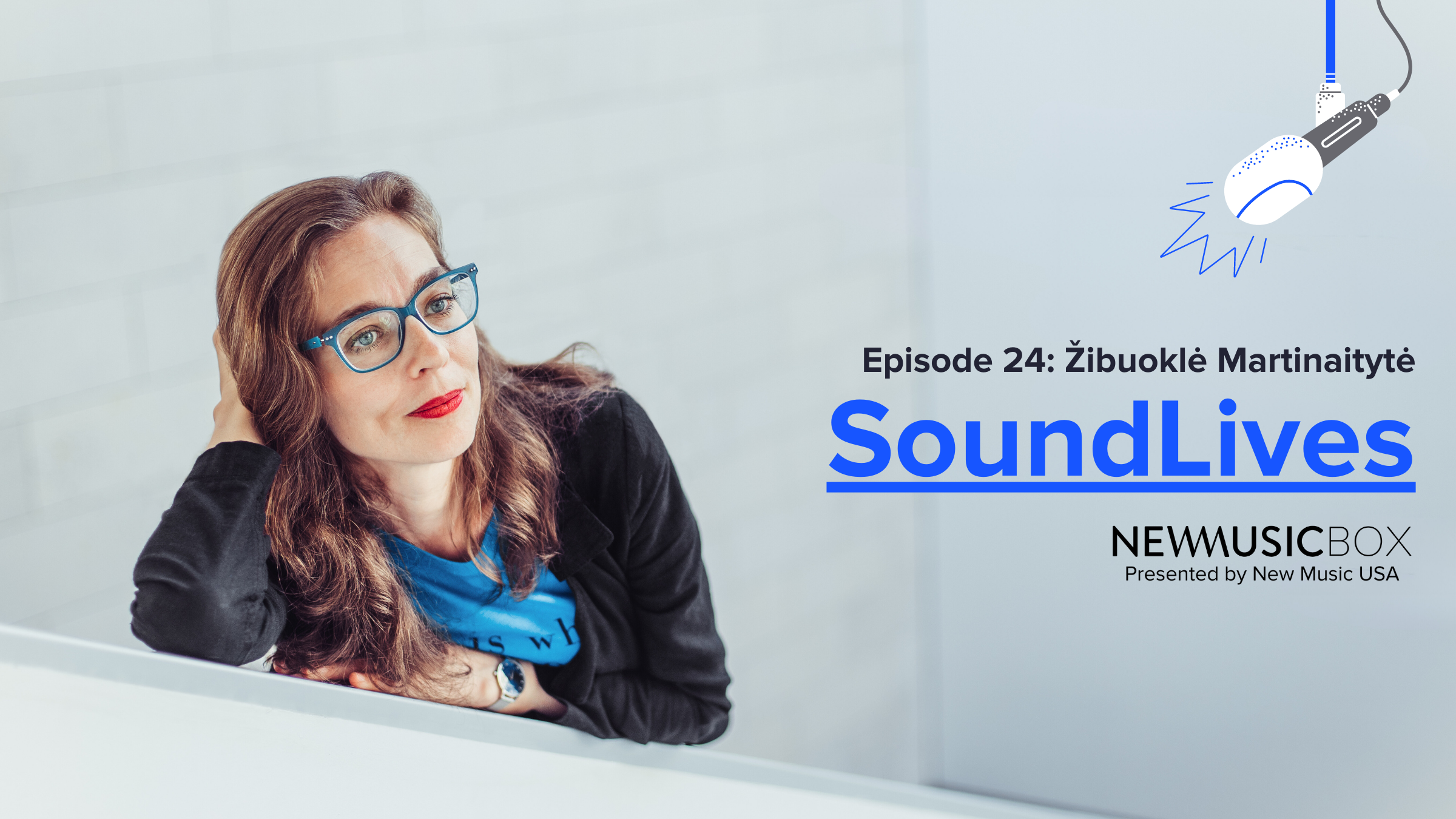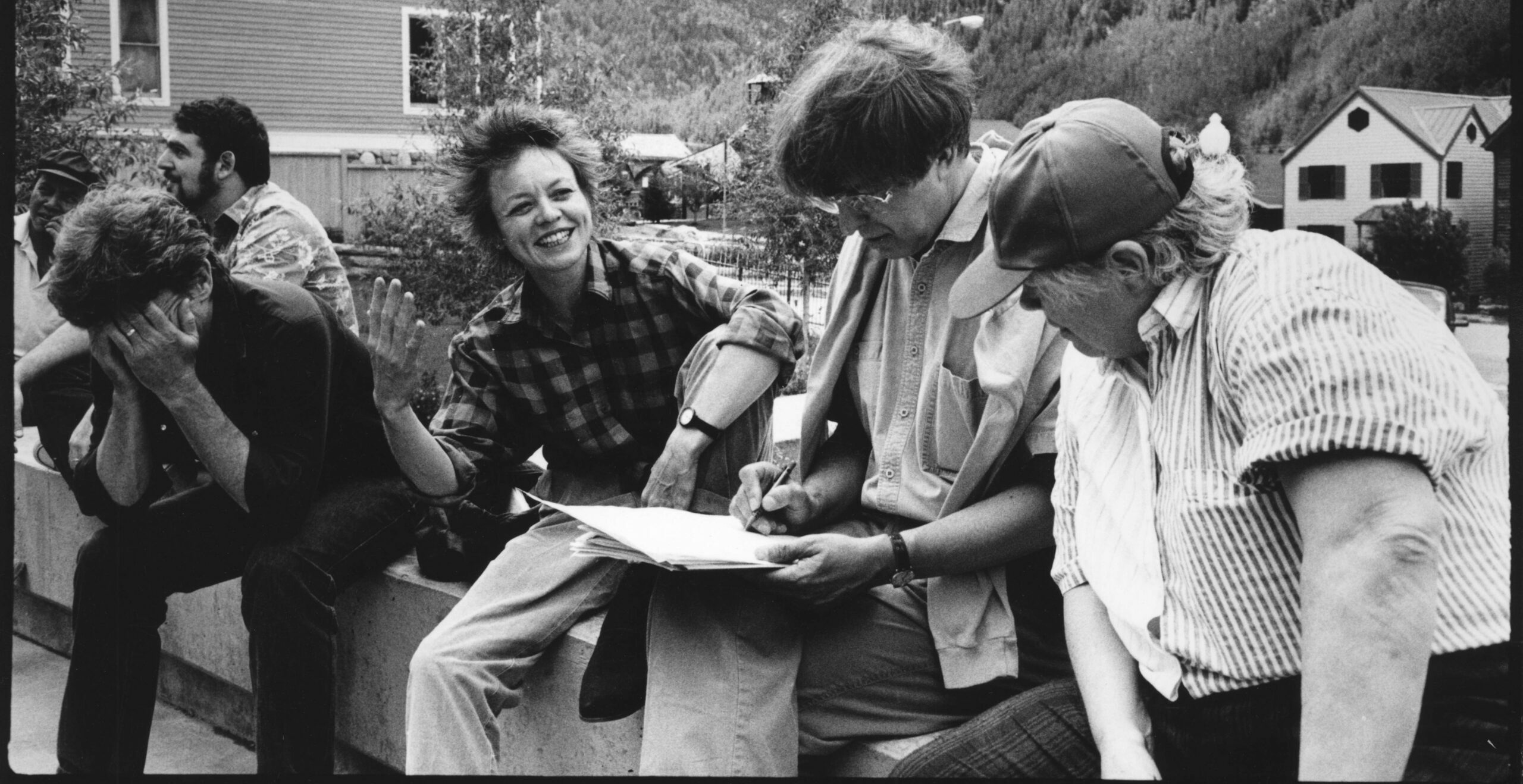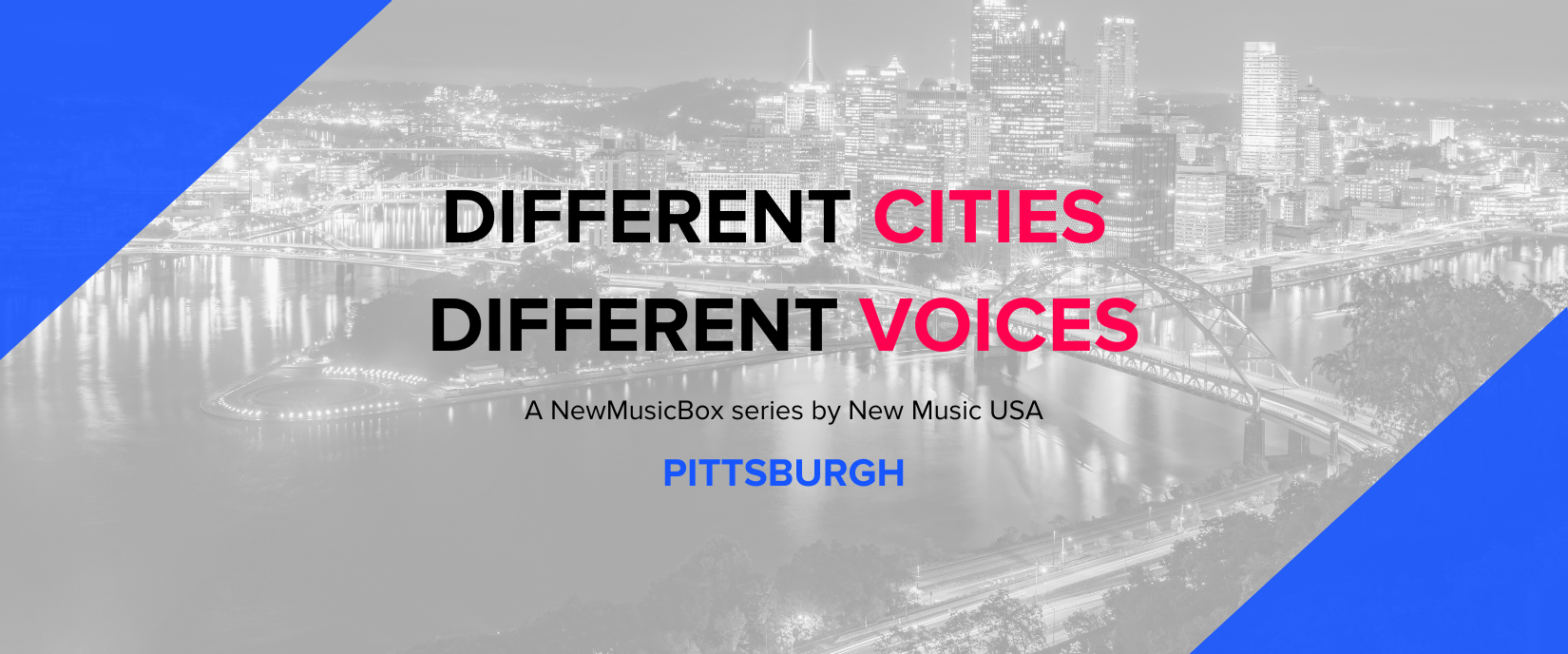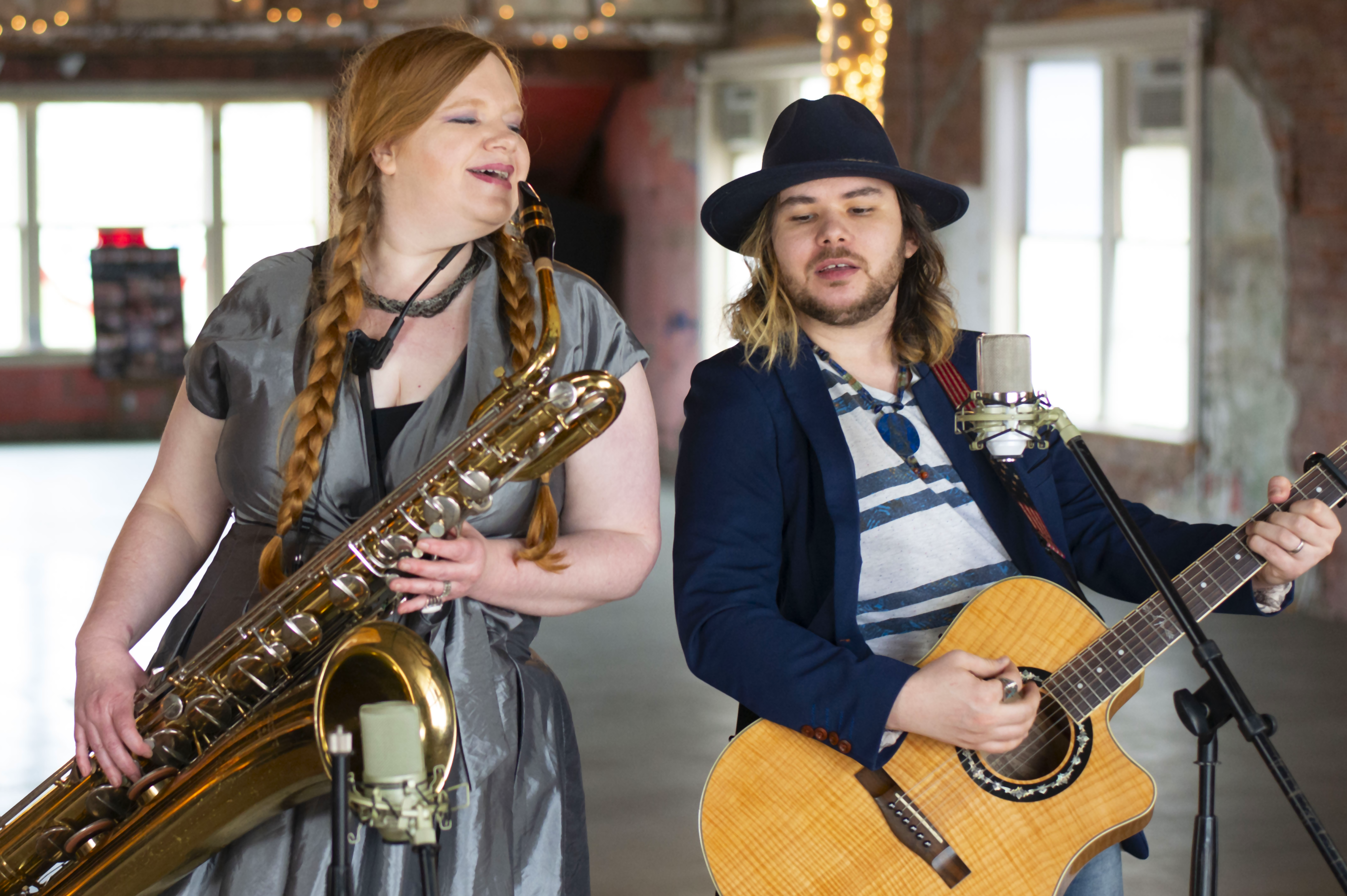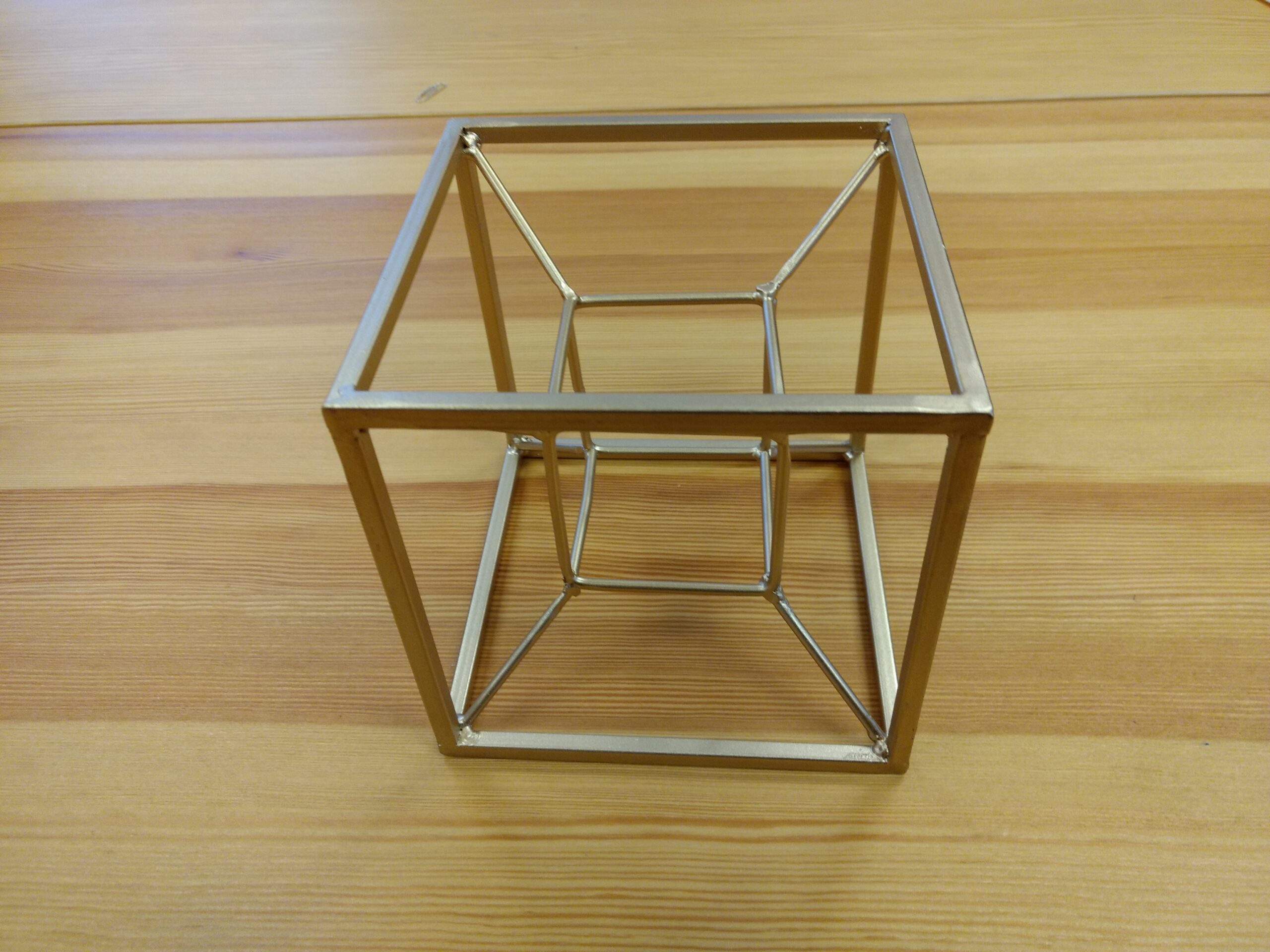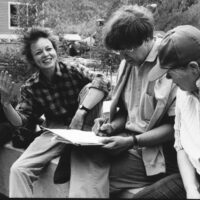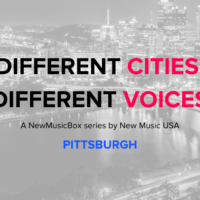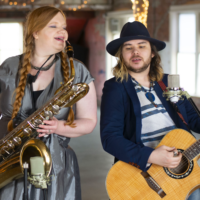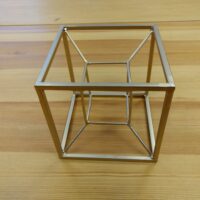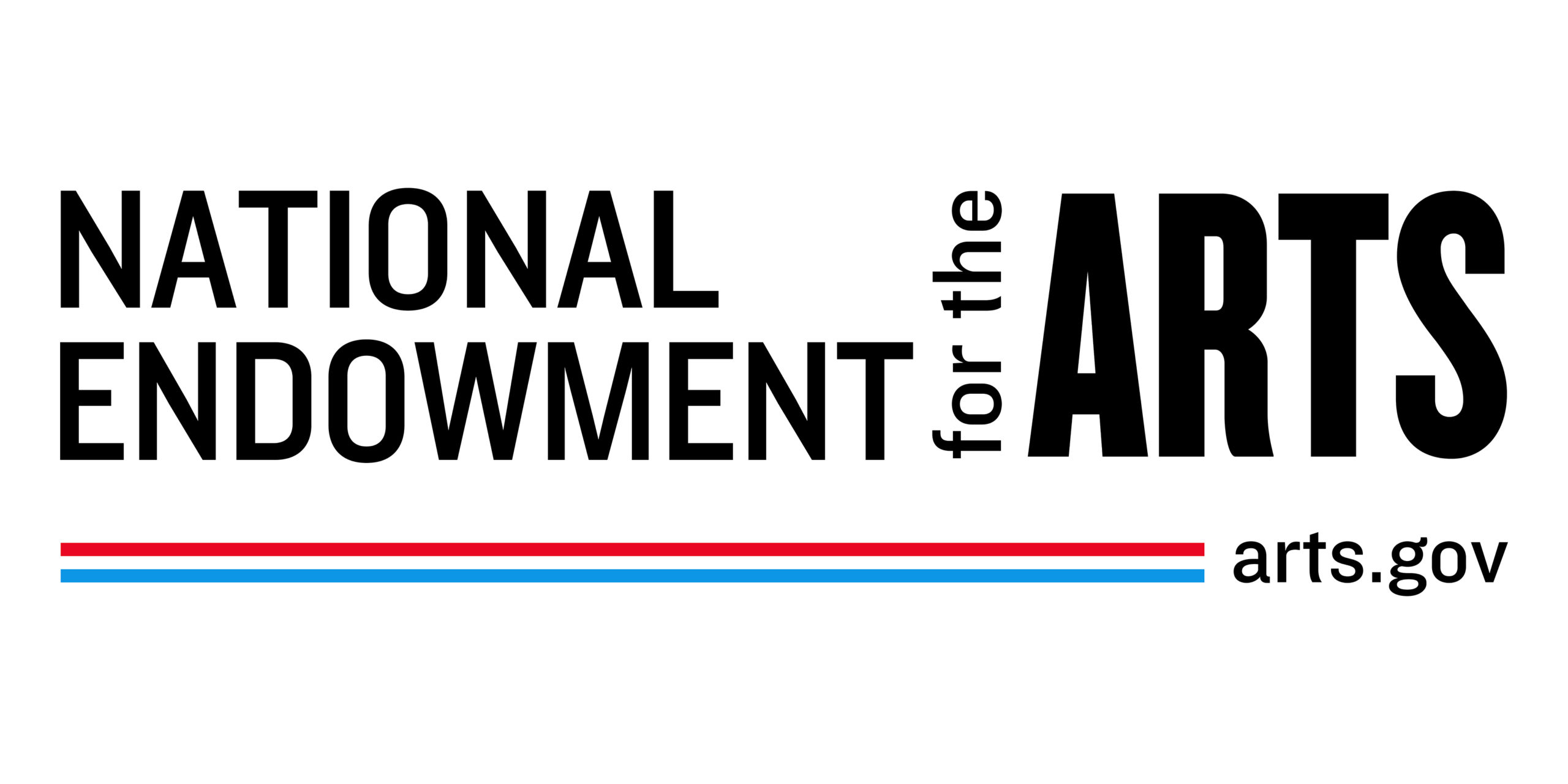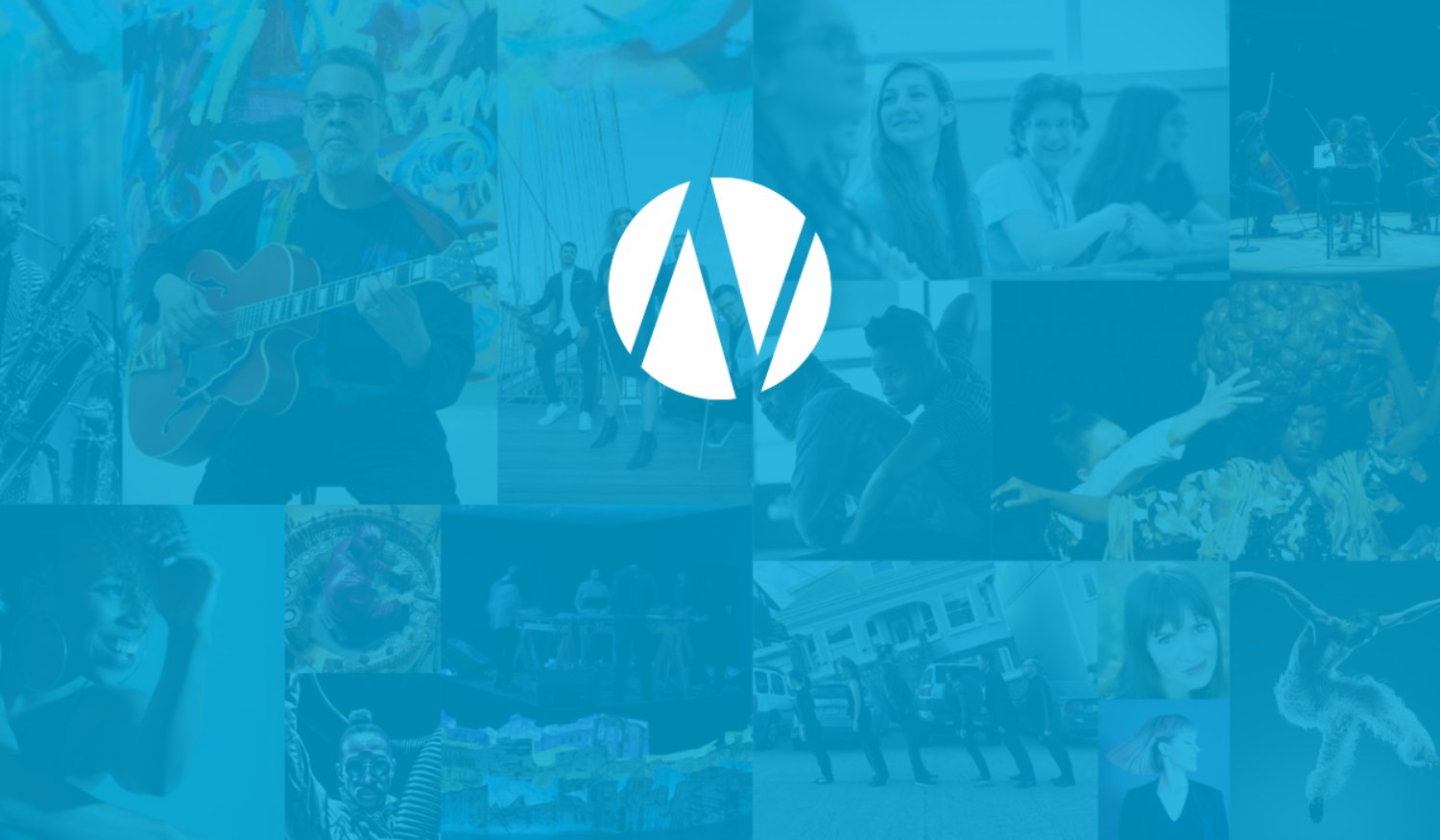
As the coming school year lumbers over the horizon, I’ve been giving some thought to the future of composition as an academic discipline. The current dicey economic climate—and the growing attitude in the public sphere that educational institutions should operate by the same principles that private businesses obey—certainly don’t seem to bode well for music programs.

The artist collective called Ecosono is devoted to melding experimental sound art and environmental preservation, in an effort to highlight ecological awareness through innovative musical creations. Their new DVD, Agents Against Agency, documents nine multimedia projects exploring the interconnections between musical expression in dialog with the surrounding environment, both natural and manmade.

I was recently browsing through some of my old choral scores, looking to see if there were any I could recycle to make room for new material, when a score spilled out of the pile marked “college choir.” What would be in the “college choir” stack of scores of the students currently singing in U.S. colleges. What are they singing and why?

One of the more satisfying aspects of being part of a music faculty as a full-time job is the fact that there’s always room to improve and new challenges to be met. I have a colleague who’s been teaching keyboard skills for roughly 40 years, who told me a few years ago that she finally found a better way to help students master a concept that had been part of the curriculum for her entire tenure. I am still inspired by her example.

This is a big year for the Austin Chamber Music Center. It marks the 30th anniversary of the center itself, the 5th year with Michelle Schumann as director, and arguably the biggest year for its annual festival. Now in its 14th year and spanning more than two weeks, the festival features a wide range of performing groups, from the alt-jazz of Kneebody to the Tokyo String Quartet. This year’s festival also has a featured composer in Michael Torke, a first for the festival.

While the major labels and pop music may be able to reap a real income stream from Spotify simply due to the sheer volume of streams, the Spotify model is not financially sustainable for any indie niche label. As the industry moves more in this direction (competitor Napster, for example, only yields slightly more, about 1 cent per stream), it will simply choke the indie labels out of business.

This time next week, I will be riding up and down the historic ascensores in Valparaíso, Chile, as part of a six-destination trek through three countries in South America all in less than two weeks. It will be a mad scramble from place to place in an attempt to visit as many art museums and historic sites, sample local food and drink, and bring back as much sheet music and as many recordings from that part of the world as I can possibly find and fit in my suitcase.

The annual Festival of Contemporary Music at Tanglewood, which started last Wednesday, has long been dominated by what used to be called the new-music mainstream, before new music sprouted so many streams that the title became dilute. Charles Wuorinen, the director of this year’s festival, certainly made his reputation in that mainstream: East Coast, atonal, academic. But, so far, this festival has been comparatively—well, funky might be too strong a word for it, but certainly more loose, more varied, than past festivals.

The fact of the matter is that very, very few composers would be able to be as good as they are or as successful if they did not have strong relationships with performers and conductors. It is those friendships, be they casual or intense, that inevitably spur on a good portion of most composers’ output.

I’ve been blessed to be playing in several regularly repeating performance situations where the personnel and repertoire are fairly fixed as well as situations where the performances and personnel may not occur or assemble again. The regularly occurring performances are in restaurant/bars where the management appreciates music and takes pride in making a place where music can be presented as an art and not as a backdrop to small talk.

This question about whether to start up a blog has come up so many times over the past few weeks that it seems it should be addressed. With so many websites now being built using the Wordpress platform, it’s a natural question that arises from the dynamic nature of the format. I wish there were a clear-cut, yes or no answer, but the reality is that there isn’t one!

This might be one of the meanings of Picasso’s famous utterance, that “Art is a lie that leads to the Truth”—that in order to express the essential we must commit occasional (or even very grave) sins against our primary perceptions; or rather, we must (momentarily) abandon the confines of consensus reality in order to uncover the deeper reality underneath.

Now that the initial furor over Nonesuch’s cover for the upcoming Steve Reich/Kronos release WTC 9/11 has dissipated, I want to point out something about the brouhaha that should be clear but seems not to be: The album cover suits Reich’s recent music perfectly, but it’s impossible to prove empirically that either is immoral.

Bang on a Can composer-founders Michael Gordon, David Lang, and Julia Wolfe don’t just create music. They’ve also created a utopian environment where independent-minded young composers and performers gather every summer for three weeks to immerse themselves in contemporary and experimental music. The institute celebrated its 10th season this summer, and I traveled to North Adams, Massachusetts, to hear the culminating marathon concert at MASS MoCA. As was evidenced by the six hours of excellent performances of exciting new pieces (and a couple of oldies) by the Institute Fellows alongside the Bang on a Can All-Stars, the festival is going full-steam ahead into decade number two.

Last week, I finally made the pilgrimage to Mass MoCA to see their exhibitions and to hear performances from the Bang on a Can Summer Music Festival. It was inspiring to hear experimental music in the same room as a giant Joseph Beuys sculpture, drawing clear associations between the musical and visual arts of our time. This cross-pollination—which extends beyond the simple act of performing in a gallery space to include installation pieces by BoaC artists—can help call attention to experimental music’s place among the contemporary arts.

A collection of five short tracks adding up to just 20 minutes of music, this EP feels like more of an amuse-bouche than an image of the ensemble’s full reach, but the character of the music is enchanting enough to make it an attractive listen. Each piece rings out as if the lid has been lifted up on a new music box, the lines mixing vibraphone, marimba, and glockenspiel with percussive sounds made using less traditional wood, metal, and glass objects. With these raw materials, the ensemble employs a musical vocabulary just quirky and mysterious enough that it would comfortably fit into the films of Jean-Pierre Jeunet.

Last week, along with colleagues from other national arts service organizations, I had the honor of visiting the United States Department of State in Washington, D.C. for a meeting with the staff of the Cultural Programs Division. I also audited three sessions of a new advanced cultural diplomacy course for foreign affairs personnel offered at the George P. Shultz National Foreign Affairs Training Center in Arlington, Virginia. Who knew these things existed?

Whether it is an orchestral work or a composition for chamber ensemble, Pierre Jalbert professes his affection for musical forms both large and small, and especially enjoys the back-and-forth of creating a work for large forces immediately followed by a smaller one. His compositions, which are vibrant and tautly constructed with thoughtfulness and precision often contrast slow music suggesting a sense of “suspended time” with fast, highly syncopated material that propels the work forward.

To this day there is a tacit understanding that jazz improvising comes less from study and practice than from divine inspiration. That includes a premise that the more deeply one is ensconced in a culture of literacy, the less able one is to “properly” perform jazz music. Of course, most professional musicians know this to be fallacy. The best and best-known jazz icons throughout the history of the genre learned the basics of music at an early age and continued to engage in intensive training throughout their careers. Jazz is not, nor was it born of, a musically illiterate culture, although it is generally accepted to be born from a culture that was kept illiterate for purposes of controlling them.

While most composers feel somewhat comfortable discussing the technical “nuts and bolts” aspects of their compositional processes and techniques, it feels like you’re on thin ice when you ask them about what “inspired” a work or what ideas or mechanisms caused a work to emerge in its current shape. As I’ve been slowly racking up interviews with composers, I’ve tried to get around this thin ice by coming at the question from a side angle: “Do you incorporate non-musical ideas into your music and, if so, how do you go about it?”

The Glimmerglass Festival in bucolic Cooperstown, New York is about the only place I can think of where one can kayak in to a performance of contemporary opera—or where people are actually encouraged to do so! Newly-appointed Glimmerglass Artistic Director Francesca Zambello has said in an interview that she’d even welcome anyone who arrives in a bathing suit if they swam here to see an opera.

Last night at around 10 p.m. I felt like I was totally out of steam and was starting to get ready for bed when I thought, “No. You didn’t sit down with this composition at all today—spend at least a few minutes with it before turning in and you’ll feel better.” Well, I more than felt better; a few minutes turned into two hours, and that little bit of time revealed the breakthrough from “I’m pretty sure I know where this is going…?” To “I definitely know where this is going!”

Many scores are visually striking, but Will Redman’s catalog carries a particularly strong “take this piece and frame it” vibe. In his work, fragments of traditionally notated music can be found free-floating on an eight foot scroll or overlayed on top of one another to form a dense nest of competing musical ideas, with lines and other abstract graphic symbols implying mood and character.

Although Chris Shultis’s career as a musician and scholar has been long and multifaceted, his colleague Richard Hermann pointed out to me that he is, in a sense, a young composer: It was not until the late 1980s that Shultis (b. 1957), initially a percussionist, began to write music full-time.
